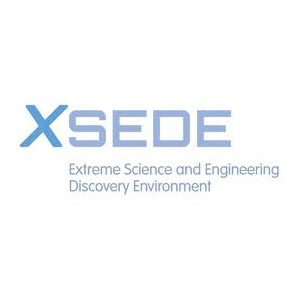 Last week, XSEDE announced it has awarded more than $16M worth of compute resources to 155 research projects. This is the first cohort of allocations awardees after the announcement of a 5-year renewal of XSEDE by the National Science Foundation to expand access to the nation’s cyberinfrastructure ecosystem.
Last week, XSEDE announced it has awarded more than $16M worth of compute resources to 155 research projects. This is the first cohort of allocations awardees after the announcement of a 5-year renewal of XSEDE by the National Science Foundation to expand access to the nation’s cyberinfrastructure ecosystem.
We see XSEDE as a connector of services to researchers in need of resources and support,” said John Towns, XSEDE Project Director. “XSEDE provides access to and support for a portfolio of resources and services that can advance digital inquiry in any field of study.”
Through these allocations, research teams gain access to digital scholarship resources and guidance from experts across the country to help achieve their research objectives in a wide range of domains. XSEDE-allocated resources and services include, specifically, time on supercomputers, data storage and ECSS (Extended Collaborative Support Service) help. Most research teams located at a U.S.-based institution—be they in academia, government or industry—and publishing the results openly are eligible to submit allocations requests to XSEDE.
The 155 research projects given the go-ahead for compute time, storage space, and collaborative support include allocations as large as 13 million Service Units (SUs) (Christina Payne, University of Kentucky, biochemistry) and as small as 16,000 SUs (Noushin Ghaffari, Texas A&M University, biochemistry). Many XSEDE allocations are used by research teams new to advanced computing: 41 percent of projects awarded XSEDE allocations are smaller than 1 million SUs.
Most research teams in any field based in the United States can submit an allocation request for XSEDE resources to help further their work in open research. Work done with the help of XSEDE resources has included research in agriculture, molecular dynamics, and meteorology. Additionally, XSEDE helped with production of the results from 2016’s LIGO discovery of gravitational waves, research that led to changes in the way trading is done on Wall Street, and an investigation into the history of the lives of black women.
Researchers interested in the types of compute resources available through an XSEDE allocation can find an updated list of various types of supercomputers and clusters, and their specifications, here.
Researchers who are seeking to improve their team’s computational skills, optimize their codes, or otherwise accelerate their work on XSEDE-allocated resources can request can request help services in the form of ECSS, wherein a domain expert from XSEDE works with the PI to help improve their methods over a period of time as long as a year.



